![]() — หน้าแรก — เกาะติดข่าว
— หน้าแรก — เกาะติดข่าว
ข่าวเศรษฐกิจและธุรกิจประจำสัปดาห์
-
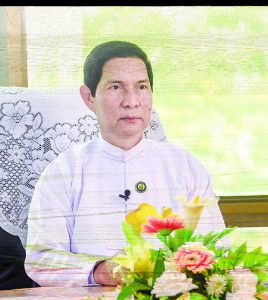
Ministry of Industry is working in line the State economic policy with emphasis on research and innovation for quality production
The Ministry of Industry was reorganized on 1 April 2015 by adopting with 4 state policies on industrial sector development; with 2 missions; with 6 work programs in the functioning of the Ministry; two departments, and four industrial establishments. Development of Industrial Sector The Ministry undertakes a wide ranging responsibilities in the operation such as that of drafting industrial policies in line with the State economy; that of drafting industrial strategic development and industrial zone; the policy on economic development of SMEs; that of all the implementation in accordance with law and by laws; that of the policy in saving power and energy along with guidelines (or) drafting framework of law; that of providing training courses in producing industrial workers as human resources development. Other tasks are also undertaken such as that of enforcing in line with the hazardous chemical related laws; that of drafting laws with regards to motor vehicle production development in line with the motor vehicle policy; that of working in connection with the Myanmar Sustainable Development Plan and Myanmar Investment Promotion Plan. -
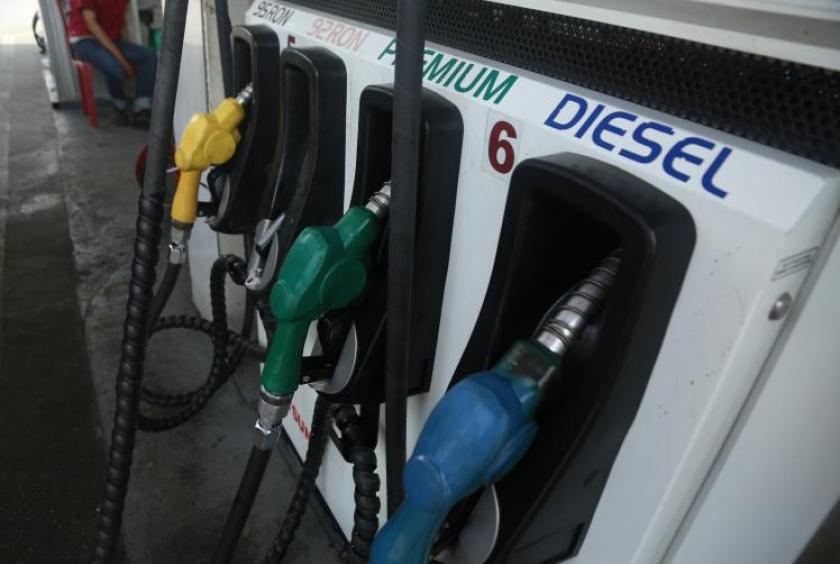
Local fuel prices increased by Ks 140 to Ks 200 per liter over the past four months as global oil prices continuously increased
Local fuel prices have continued to increase by K140 to K200 per liter over the past four months as global oil prices reach about US$64 per barrel although Myanmar Kyat against dollar sees little fluctuation with the current value of just over K1,500, according to local filling stations. On April 18 in local market, maximum prices were K990 for one liter of diesel (K4,500 per gallon), K1,000 for one liter of premium diesel (K4,546 per gallon), K860 for one liter of 92 Ron octane (K3,910 per gallon) and K930 for one liter of 95 Ron octane (K4,228 per gallon). In comparison with the prices on January 3 this year, prices of one liter of diesel have increased by K140 (16.47 percent), one liter of premium diesel by K145 (16.95 percent), one liter of 92 Ron octane by K190 (28.35 percent) and one liter of 95 Ron octane by K200 (27.39 percent). -
Myanmar’s sea trade with foreign countries reached over USD $ 11 billion from Oct to the mid of March 2019
Myanmar's trade with foreign countries through sea route reached over 11.05 billion U.S. dollars as of March 15 in the current fiscal year 2018-2019 starting in October last year, according to Myanmar's Commerce Ministry Saturday. During this period, Myanmar's maritime export hit over 4.2 billion U.S. dollars while its import reached 6.85 billion U.S. dollars. The figure decreased by about 100 million U.S. dollars compared to the same period of the last FY 2017-2018 which showed over 11.15 billion U.S. dollars. -
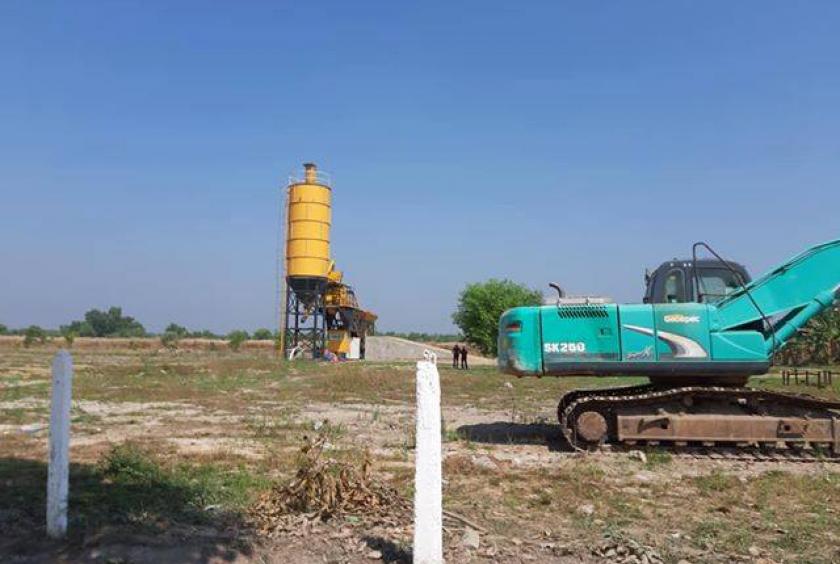
Urban related four mega projects begun construction activities in Yangon and Mandalay
Urban –related four mega projects have begun construction activities three in Yangon and one in Mandalay, said a source from the Ministry of Construction. Eco Green City Project has begun implementation on a basis of joint venture with local developer Alliance Star Group of Companies in Hlegu Township, Yangon. Smart District Project is also being implemented in Dagon Seikkan Township in Yangon, said Deputy Minister Kyaw Lin of the Ministry of Construction. New Mandalay Resort City Project is now being implemented on about 7,000 acres of land in PyinOoLwin in Mandalay as Clean, Green and Smart Satellite Town Project. Similarly Korea-Myanmar Industry Complex on 558 acres of land has been under implementation near Nyaung Hna Pin Village in Hlegu Township, Yangon Region. The first phase construction of Eco Green City Project in Hlegu is from 2018 to 2023. Ayeyarwun and Yadanar Affordable Housings have been under construction as Smart District Project in Dagon Seikkan Township. -
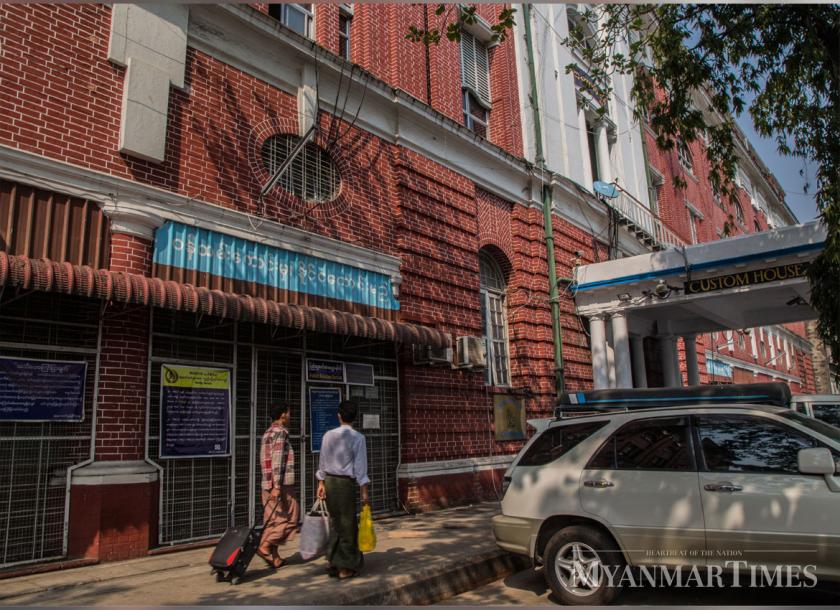
International Monetary Fund has warned Myanmar economy which is appeared to be losing momentum due to the concerns over fallout from the Rakhine crisis and weakness in the banking sector
The International Monetary Fund has warned that the Myanmar economy “appears to be losing momentum”, citing concerns over fallout from the Rakhine crisis and weaknesses in the banking sector. The IMF said “risks are tilted to the downside” and that failure to address the humanitarian catastrophe or the refugee repatriation process would hurt the country economically. “A prolonged humanitarian crisis and any withdrawal of trade preferences could reduce concessional donor financing and investment leading to lower growth,” it said. The European Union is considering initiating a withdrawal process of the trade privileges it has offered Myanmar, owing to the human rights violations in northern Rakhine. The fragility of the banks presents another risk, the IMF added. Macrofinancial spillovers from the ongoing banking sector restructuring process may become more severe if banks delay recapitalisation. There is a need to improve compliance and loss recognition. -
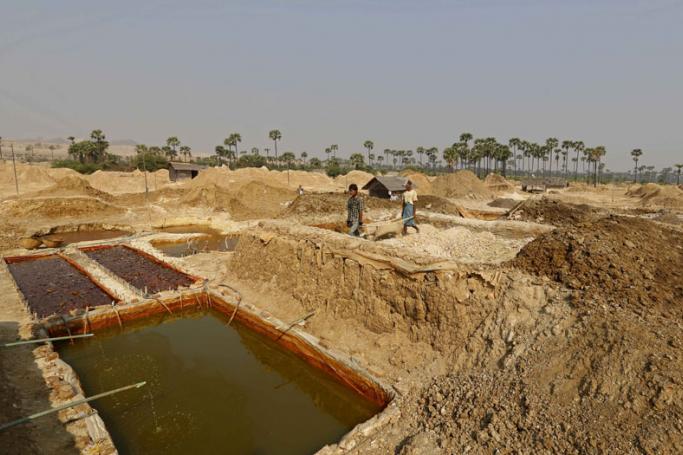
China is likely to decline imports of rare-earths from Myanmar starting from next month
China is likely to trim imports of rare earths from Myanmar starting next month, which an analyst said will help relieve oversupply in China. The country will also tighten its exports in the future because of the increasingly high environmental costs. China imported 26,000 tons of rare earths carbonate from Myanmar in 2018, accounting for 25 percent of total domestic demand, financial news site jrj.com.cn reported Wednesday, citing an industry study. Among the imports, heavy rare earths from Myanmar accounted for about one-third of China's consumption in 2018, the report said. Amid a crackdown on illegal mining, China strengthened efforts to reduce illegal rare-earth capacity and halted approval for new mines after the end of 2016. Due to a relative domestic shortage of heavy rare earths, China increased imports from Myanmar and became a net importer of rare earths for the first time in 2018, according to the report. -
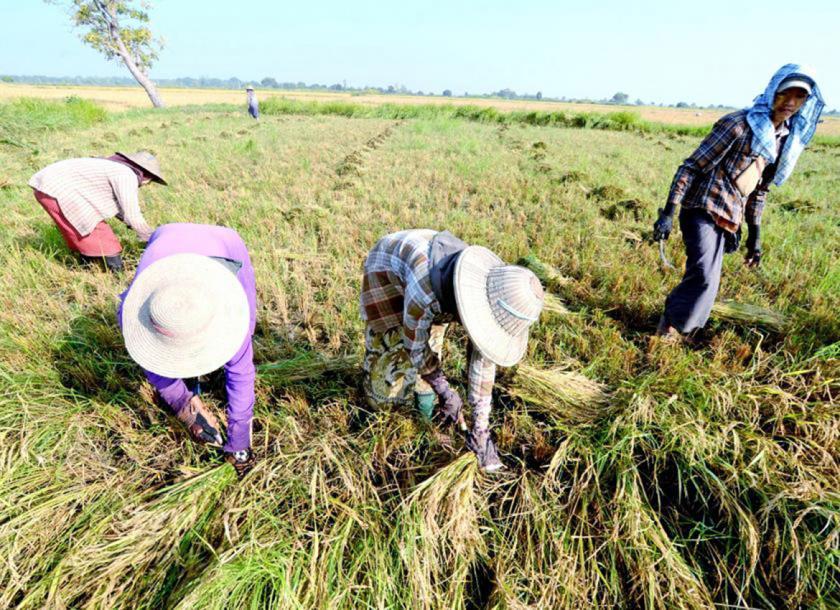
Yangon subsidiary of an Indian agri-logistic group granted USD $ 3 million loan from IFC to expand warehousing and logistics services in Myanmar
The Yangon subsidiary of an Indian agri¬-logistics group has secured a US$3 million loan from the International Finance Corporation (IFC), the investment arm of the World Bank. Delhi-based Sohan Lal Commodity Management (SLCM) will use the capital to expand its warehousing and logistics services in Myanmar. The terms of the loan were however not disclosed. The company handles cotton, black pepper, rice, wheat, pulses, maize, sugar and spices in Myanmar, for both imports/exports and domestic consumption, according to SCLM assistant manager Diksha Arora. The Myanmar unit has managed 3.24 million square feet of commodity storage space in 127 industrial zones and handled 10.14 million tonnes of commodities. Agriculture is the backbone of Myanmar’s economy, while more than half of the national population live in rural areas. But the infrastructure and technology necessary for farmers and traders is severely underdeveloped. Many local warehouses are completely lacking in operational equipment and technology, such as CCTVs, dock levellers or a stable power supply. -
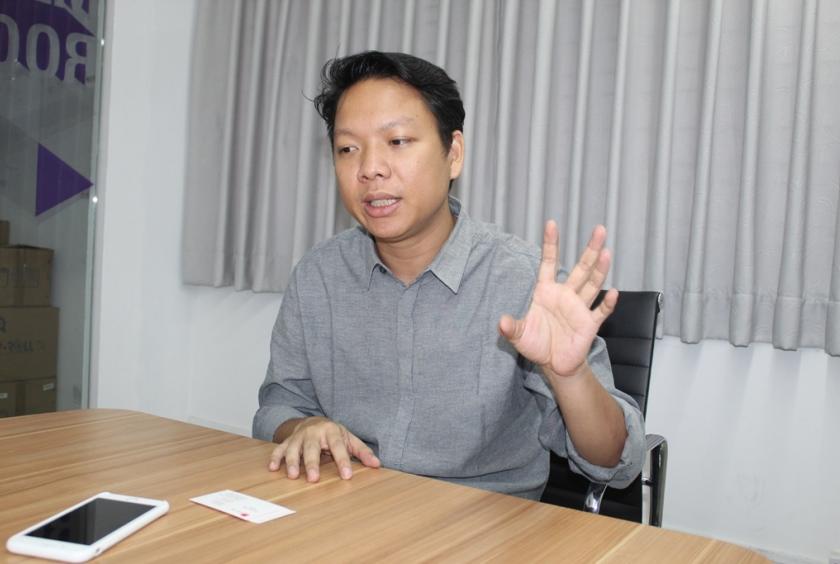
Code2LAB Pte Ltd, a local technology company, is focusing for the implementation a digital ecosystem for Myanmar’s restaurant industry in the first phase of its commercial operations
In response to the growing cash flow in Myanmar’s food and beverage industry, Code2LAB Pte Ltd, a local technology company, has brought two innovative solutions to the market to help digitise the nation’s restaurant industry, according to Min Zeya Phyo, the firm’s founder and chief executive. In an exclusive interview, he said the firm would focus on establishing a digital ecosystem for Myanmar’s restaurant industry in the first phase of its commercial operations. “Everybody loves food, so it is like the centrepiece of everything. We expect the industry to grow further as the economy grows. So, we are trying to bring restaurants and customers together,” he said. “Our aim is to get all things connected in a fully-integrated ecosystem. We believe we can make it happen, but it may take time because the industry has yet to reach the mature stage. We are waiting for the market to fully develop.” -
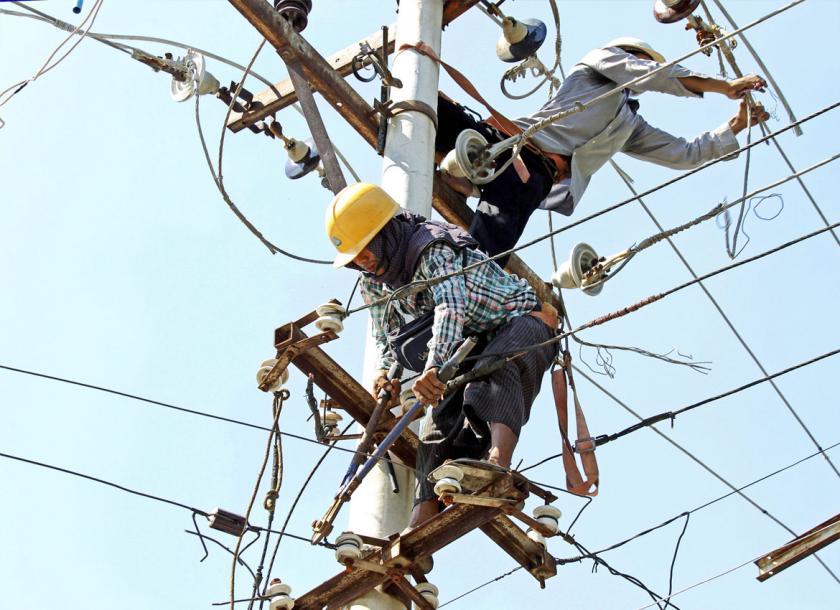
Smart Power Myanmar and The Asia Foundation launched two complementary studies of decentralization within Myanmar’s energy sector with the aim to answer Myanmar’s electrification challenge
Mini-grids can supply electricity in off-grid areas before the main grid arrives, studies find. Smart Power Myanmar and The Asia Foundation, both international development nonprofit organisations, launched two complementary studies of decentralisation within Myanmar’s energy sector last month. Smart Power Myanmar’s latest study, Decentralized Energy Market Assessment for Myanmar, considers the potential role of mini-grids in bringing electricity to millions of people in Myanmar, as well as measures to increase their technical and economic viability. With limited electricity access in Myanmar, mini-grids could play a pivotal role in supplying electricity in off-grid areas while the expansion of the main grid progresses, and they can also be integrated into the main grid upon its arrival. -
Myanmar’s economic growth is expected to pick up in 2019 and 2020 due to the high Foreign Direct Investment (FDI) and positive responses to the government’s economic and policy reforms
Myanmar’s economic growth is expected to pick up in 2019 and 2020, thanks to higher foreign direct investment (FDI) and positive responses to the government’s economic and policy reforms, according to a new report by the Asian Development Bank (ADB). The Asian Development Outlook (ADO) 2019 forecasts Myanmar’s economy to grow 6.6% in the fiscal year ending in September 2019 and 6.8% a year later. By comparison, Myanmar’s gross domestic product (GDP) growth slowed to 6.2% from April to September last year. “Prospects for Myanmar’s economic growth for 2019 and 2020 looks positive as the country opens up the retail and wholesale sectors and continues to modernize corporate governance and management in Myanmar,” said ADB Country Director for Myanmar Mr. Newin Sinsiri. “Myanmar will continue to see steady growth in the next few years if the government successfully accelerates the wide range of economic reforms initiated since 2011.”
เกาะติดข่าว
Copyright © 2014 Business Information Center All Rights Reserved.







